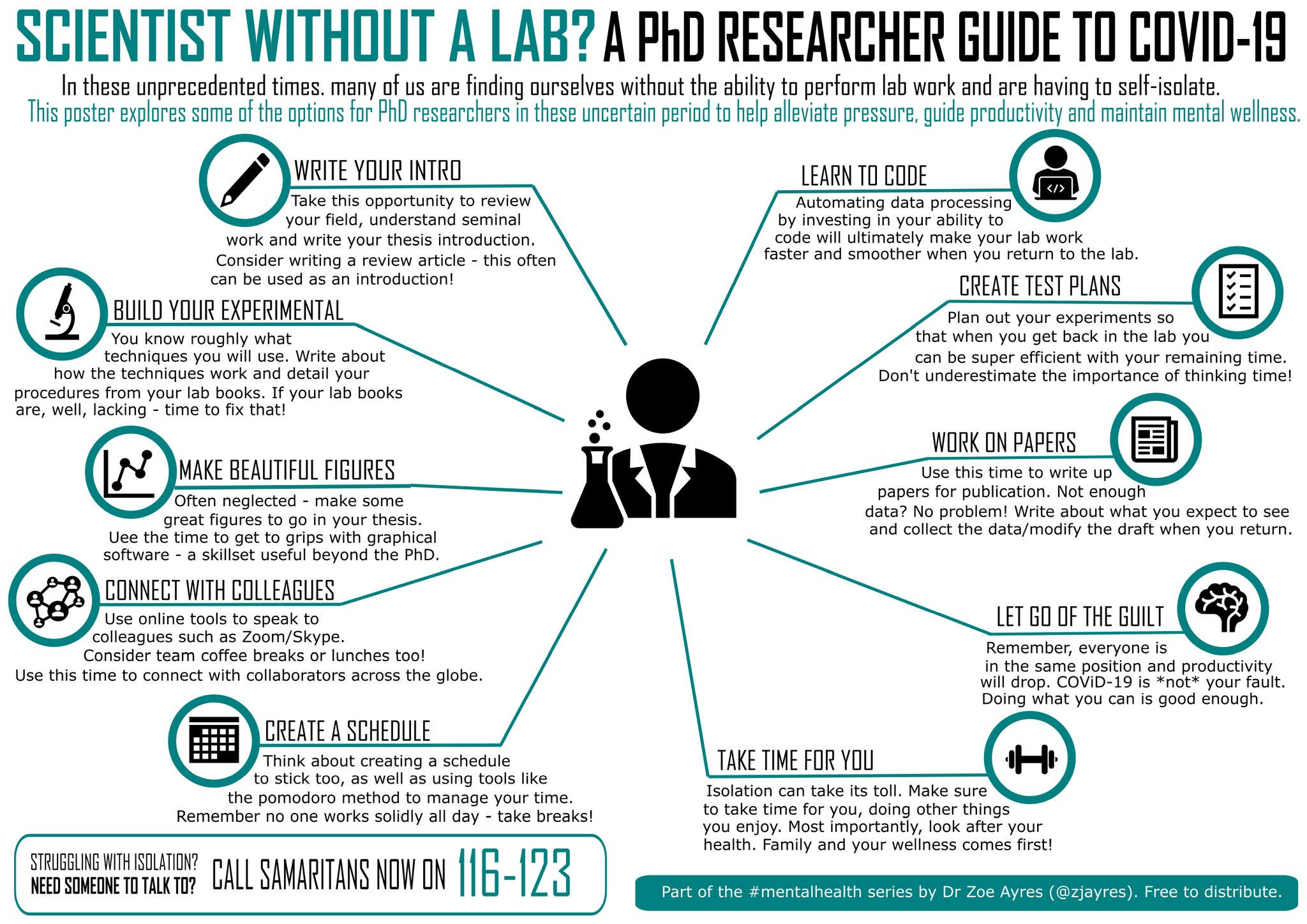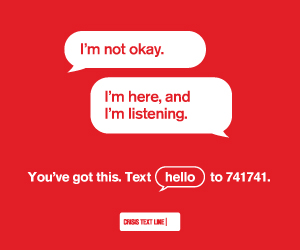Maintaining Well-Being: Graduate Student Version

This academic year has been unprecedented. Across campuses, everyone has had to adjust to new formats in classes, research, and social activities. Opportunities may be virtual, on-campus, hybrid, or constantly changing formats.
For graduate students, this year may not be what you had anticipated or expected. Below we provide some tips on how graduate students can maintain their well-being and stay connected during the pandemic.
What is social distancing?
Social distancing is a way to keep people from interacting closely or frequently enough to spread an infectious disease. This means avoiding large gatherings and maintaining distance (≥ 6 feet) from others when possible. Social distancing is an effective way to limit the spread of the coronavirus. This is especially important with people who have had different environments of exposure than yourself.
But social distancing does NOT mean social isolation. Practice distant socializing and stay connected with those who are important to you. Below are some tips for maintaining your well-being during periods of social distancing:
Working from home:
• Get dressed and stick with your routines. Do the things you normally do and plan out your day deliberately.
• Try to have separate “work” and “life” spaces.
• Take lots of breaks to stretch, breathe, or meditate.
• Manage expectations and be kind to yourself! It’s likely that you won’t be as productive as usual, so make sure you set reasonable expectations for yourself and others.
• See here for more WFH tips and check out this scientist’s guide to COVID-19.

Staying connected:
• Make dates to have actual conversations online. Video call with friends and family. Talk with people you trust about how you are feeling.
• Have a virtual game night or movie night.
• Start a book club with a group of friends.
Staying active:
• Take a walk outside (but pay attention to the 6-feet rule).
• Go on a hike!
• Do a home workout video.

Trying new things:
• Try new recipes — here are some ideas for pantry staple meals.
• Been eyeing online course offerings? Try one!
• Learn to code or become a developer for FREE!
• Tour museums virtually, or tour a National Park from your couch.
• Learn a new skill like knitting, juggling, or playing an instrument.

Fighting boredom:
• Read a book (just for fun!)
• Missing the night life? Check out online concerts!
• Want to nerd out? Download Steam and play some video games on your computer. Bonus points for playing online with friends and staying connected!
• Consider keeping a journal to write down things you are grateful for or that are going well.
Making a difference:
• Practice social distancing to #flattenthecurve! This means staying home as much as possible.
• Become a UN Volunteer to team up with others and address sustainable development challenges, from anywhere in the world, from any device.
• Download Be My Eyes to provide visual assistance through a live video call to blind and low-vision people.
• Fluent in more than one language? Consider volunteering with Translators Without Borders.
• Volunteer with the Crisis Text Line or 7 Cups to offer emotional support for those in crisis.
• Visit Catchafire and Points of Light for more online volunteer opportunities!
Taking care of your mental health:
Create a sense of safety for yourself through a prevention approach.
• Keep your hands clean using soap and water or hand sanitizer containing > 60% alcohol if soap and water are not available.
• Choose a hands-free greeting instead of a handshake.
Engage in self-care.
• Get plenty of sleep.
• Relax your body often—take deep breaths, stretch, or meditate.
• Take care of your body. Try to eat healthy foods and exercise regularly.
• Make time to unwind. Try to do activities you enjoy.
Reduce media exposure if you find yourself on information overload, which can trigger anxiety. Take breaks from watching, reading, or listening to news stories, including social media. Hearing about the pandemic repeatedly can be upsetting.
Think of others, stay connected with people, and keep in touch with your networks. Let people in your support system know if you need help.
Resist the stigma. Try to avoid stigmatizing yourself or others who may get sick. Remember that we are all going through this together, and it’s important to practice kindness.
Remain reality-based using trusted sources of accurate, up-to-date information such as:
• Centers for Disease Control
• World Health Organization
Check in with your feelings and thoughts. Recognize that it’s normal to have an emotional response, and your feelings might be typical reactions to a stressful situation. Check out the following resources for more advice on coping with social distancing and COVID-19:
• Keeping Your Distance to Stay Safe
• Managing Anxiety & Stress
• Taking Care of Your Behavioral Health: Tips for so social distancing, quarantine, and isolation during an infectious disease outbreak
And finally, reach out if you need help. Keep in mind that someone out there can help, and someone out there will listen with kindness.
• Text HOME to the Crisis Text Line at 741741 to communicate with a trained crisis counselor, from anywhere in the United States, anytime, about any type of crisis.
• Call the National Suicide Prevention Lifeline at 1-800-273-8255.

This post was created by Kelsea Best, Thao Le, Chris Tasich, and the Vanderbilt Graduate Student Council.
More Resources
Emotional Connecting While Social Distancing
Suicide Prevention in University Settings







0 Comments